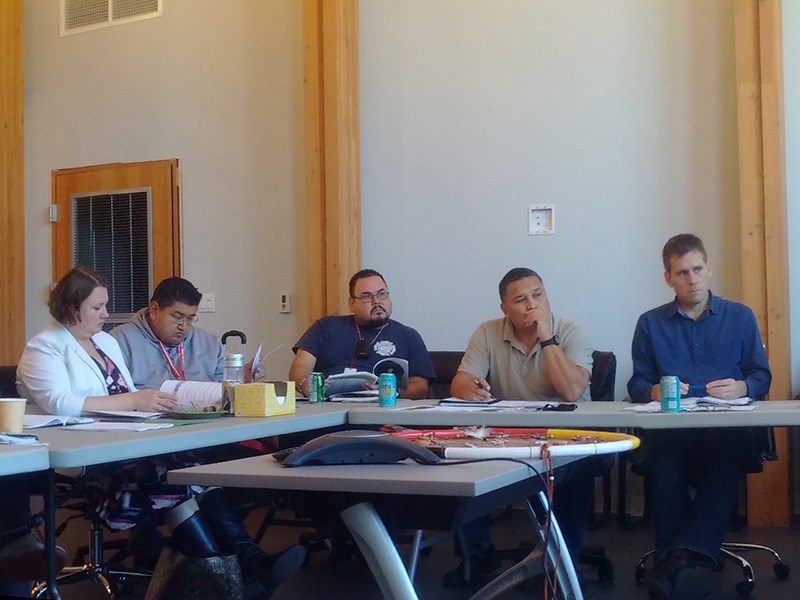Finding solutions to Powell River’s worsening housing shortage was top of discussion at a recent community forum meeting held Tuesday, October 11.
Elected officials from the region’s three local governments sat down together to talk at Tla’amin Nation Government House.
Periodic, informal lunch meetings have been one avenue for City of Powell River, Powell River Regional District and Tla’amin to discuss regional issues and facilitate freer communication.
On the agenda for the October 11 meeting, led by Tla’amin hegus Clint Williams, was a discussion on the recent Powell River Community Social Plan, also known as the Tapping the Groundswell report.
Powell River city council and the regional district board agreed to bring the community plan issue to the community forum for discussion.
City councillor and regional district municipal director CaroleAnn Leishman introduced the social-action plan and said housing is one area where all the governments can work together to develop solutions to Powell River’s dropping rental vacancy rates and rising home prices. She said the plan gives each local government the tools they need to work together.
“It basically spells it all out how three local governments can bring about some change and make it better for everyone,” said Leishman.
One of the key recommendations of the social-action plan is the creation of a regional social-action committee that can oversee a housing authority.
While all parties at the meeting agreed on the creation of such a regional committee, because the community forum is informal, elected officials were not able to pass any motions to create the committee.
Instead, all three local governments agreed to take the item back to their board, council and legislature to pass motions to send representatives to form the committee.
“We’ll leave it at that and hopefully we’ll have updates before the next session,” said Williams.
Powell River mayor Dave Formosa told the meeting the city was already taking steps to address the problem, but would look for the regional district and Tla’amin to create a working group to address the housing issue.
Leishman explained that the city recently agreed to provide the Community Resource Centre with Powell River Recreation Complex vouchers and BC Transit passes, one of the recommendations of the social-action plan.
Leishman said the 30 passes, which will be distributed by centre staff to those in need, would help the city obtain a better understanding of who was homeless and what their situations were.
“Homelessness in Powell River has, up to now, been hidden, but now we see people sleeping on the street,” said Leishman. “It’s unnerving.”
Tla’amin housing manager Paula Stewart told the meeting she thought now is a good time to start talking about the three governments working together on housing, an approach that may make it easier to secure funding from higher levels of government.
“We all have the same goal: to house the under-housed,” said Stewart.
Elected officials also talked about improving public transportation. City councillor and municipal director Russell Brewer said that similar to the community social plan, regional transportation is also an issue the three local governments should spend more time developing solutions for, particularly in light of Powell River’s aging population.
Brewer said there has been a lot of discussion on developing ride and car share programs, enhancing regional transit and looking at creating shuttle-bus service in the city.
He said he would like to see, similar to the social-action working group, another group created to act on the recommendations of the 2014 regional transportation report.
Regional district board chair Patrick Brabazon said the regional board is the “logical body to reopen the question” on regional transportation. He said he would bring the matter to the board.
“We’re all in this together,” said Brabazon, “trying to get around.”



